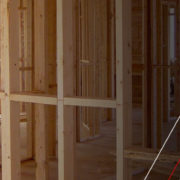A snap General Election – what does this mean for Construction?
Prime Minister Theresa May has announced plans to hold a snap general election on the 8th of June, citing a lack of unity in Parliament and Westminster. With the next general election not being expected until 2020, what could this mean for the construction industry?
The idea behind the election is that it would provide a stability and leadership as the UK departs from the EU. The public need to have faith in those steering us.
Mike Wharton, head of membership at the National Federation of Roofing Contractors (NFRC) and a fellow of the Chartered Institute of Securities and Investments (CISI), commented: “The Prime Minister’s intention to gain an increase in moral authority over Brexit talks had the immediate effect of a positive bump for the Pound. Both business and consumer confidence could benefit from a significant increase in Conservative majority, though Brexit terms are still likely to be dictated by the remaining nations of the EU. Significant uncertainty surrounds forthcoming elections in Europe and the unpredictable nature of US Government policy may give the Pound further strength. Within the built environment supply chain, Sterling strength would be a benefit to those firms which import finished product or raw materials from overseas and their contractor buyers; it could also give consumers more bang for their buck whilst keeping inflation under control. If the Pound continues to strengthen, that could also be a plus in terms of keeping borrowing costs low – all positives for the domestic construction industry in terms of confidence. There is no question though, volatility will be the watch word not just in the run up to the June General Election, but for the next few years.”
The election is a chance for the industry to make it’s priorities known. Building (building.co.uk) have realised a manifesto, Building a Better Brexit campaign, in which they have asked 200,000 construction professionals what could make leaving the EU work for them. It sets out what the industry wants from the Government, and with voices being heard a lot earlier than anticipated, the snap election could go some way to cement the ideals of a post Brexit non EU construction industry.
The 8 key demands of the manifesto are as follows:
Re-classify the construction industry from a “low priority” to a “high priority” sector in the Brexit negotiations.
Moving the construction industry up to “high priority” would give it the same status as the pharmaceuticals, car manufacturing and aerospace industries. The industry’s vital role in delivering the government’s target of 1 million new homes by 2020 and essential infrastructure such as Hinkley Point C, HS2 and the government-backed plans for expansion at Heathrow illustrate its importance to the country’s economy and its growth prospects.
Ensure tariff-free and barrier-free access for all construction product imports and exports with the EU for a transitional period of up to five years
The frictionless movement of products would allow current “just-in-time” product delivery arrangements to continue, which is vital to productivity and current business models. Meanwhile, individual rules for products can be renegotiated with the EU and the rest of the world in a realistic timeframe.
Work with the construction sector to put in place a clear, robust system for training future UK workers.
The industry seeks an express assurance from the government, similar to that given to the agriculture sector, that it will work with industry to ensure it has “the right people with the right skills” after Brexit. The reason the industry needs such an assurance is underlined by the government-commissioned Farmer Review, which indicated that construction’s labour force could see a 25% decline over the next decade, even before taking into account the possible impact of Brexit.
Confirm the rights of skilled construction tradespeople and professionals from the EU who are already legally working in the UK
Official estimates are that in London alone a quarter of the workforce, 100,000 construction workers, are from the EU. These workers make a huge contribution to the industry, and the country as a whole, and their status should be guaranteed as soon as possible by the UK government.
Guarantee freedom of movement for key skilled tradespeople and professional architects and engineers at least for a transitional period, and for any new immigration system to allow as near frictionless movement for these key workers as possible.
Around 12% of the UK’s 2.1 million construction workers are from abroad – the majority, from the EU – and constraints on labour flows would exacerbate skills shortages and put at risk projects being built on time and to budget. At the very least, the government needs to secure this arrangement for a transitional period while the UK addresses skills shortages. The issue particularly affects skilled workers because it will take longer to train them than the time available according to the government’s deadline for leaving the EU. However, a longer-term objective should be to maintain as near as possible frictionless movement of skilled workers /professionals across borders, because the alternative would weaken both the international competitiveness of the our industry and its capacity to deliver vital UK schemes.
Retain mutual recognition of professional qualifications in the industry with EU countries
This would ensure EU professional qualifications continue to be recognised in the UK and that there are no barriers to UK professionals working in the EU. The government should remove barriers to enable UK professionals to seek opportunities in other markets, establishing mutual recognition with other trading partners.
Commit to greater spending on construction of public projects in housing, infrastructure, schools, hospitals and other public projects, through both capital funding and PF2, to counteract market volatility, giving the sector a clear pipeline of work that will benefit the UK economy.
The autumn Budget is the next opportunity for the government to commit to increased spending, in particular: an increased school building and renewal programme, using both central government capital funding and private finance; releasing local authority borrowing constraints to allow investment in housing development to meet the government target for England of 1 million homes by 2020; accelerating the roll-out of new nuclear build and renewable energy programmes; implementing investments to improve digital/broadband capacity and investment in 5G to lead the way in take-up of autonomous vehicles. In addition, the government should maintain road and rail spending at least at current settlement levels.
Work with private sector clients to establish best procurement practices in order to develop more efficient bidding processes for public sector contracts
Leaving the EU will involve the government looking at options to replace the OJEU procurement rules. This is an opportunity to simplify and make procurement less resource intensive, which in turn would make the UK construction industry more efficient, enabling faster delivery of key public projects. At the same time, increasing the flexibility available to procurers to award on a best value basis should encourage and reward innovation and whole-life thinking.
No matter what the result of the election, construction will need assurances from politicians over issues that affect its ability to build the infrastructure that the UK needs. President of RIBA (Royal Institute of British Architects), Jane Duncan said “Amidst the challenges of Brexit, we need to also ensure that big domestic issues are not neglected. We need innovative designs and smarter procurement approaches to solving the desperate housing crisis, renewing and expanding our schools and ensuring that we have a sustainable environment that works across the UK”












Leave a Reply
Want to join the discussion?Feel free to contribute!